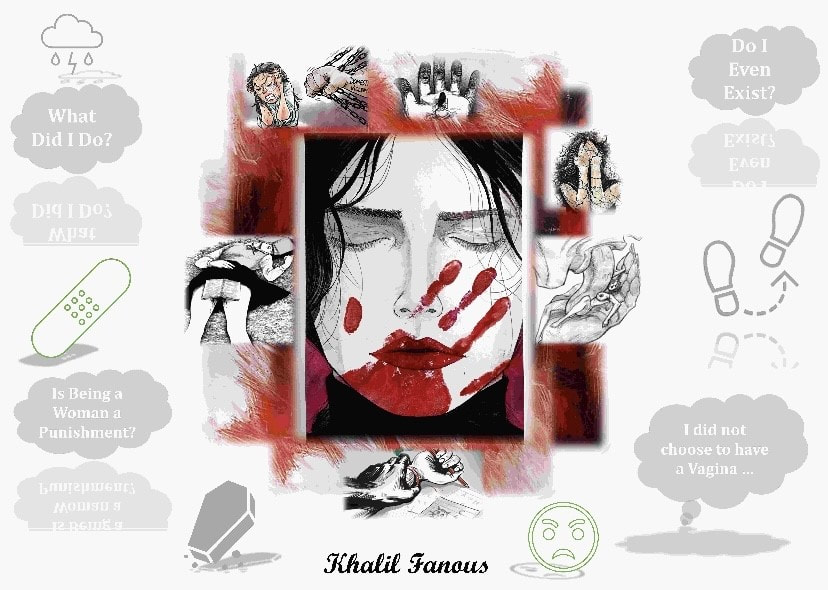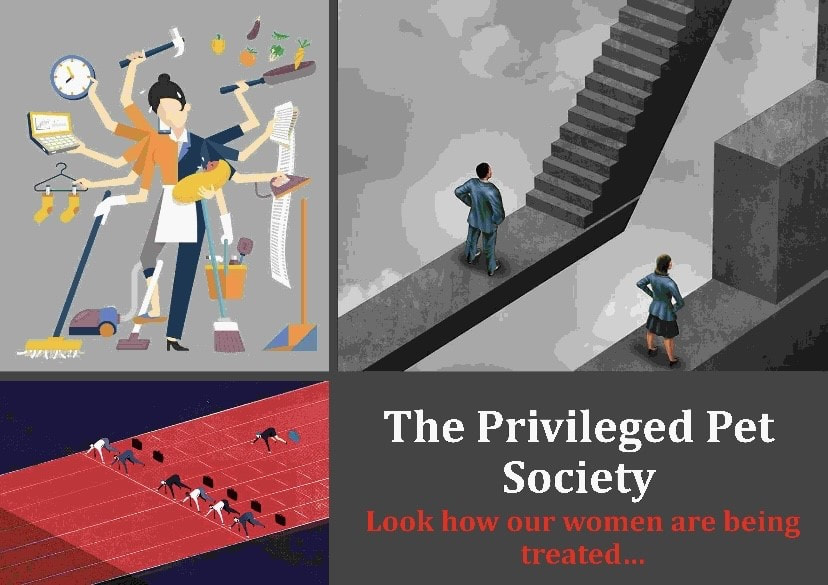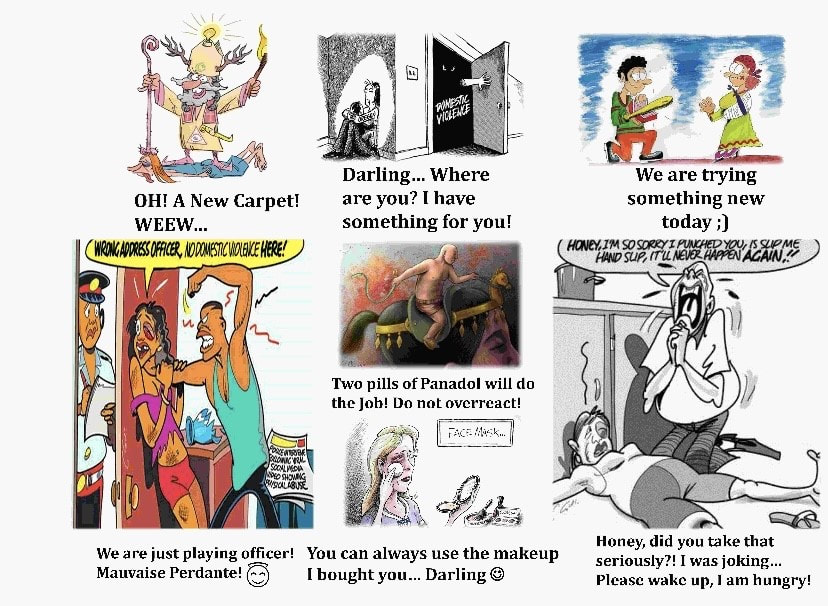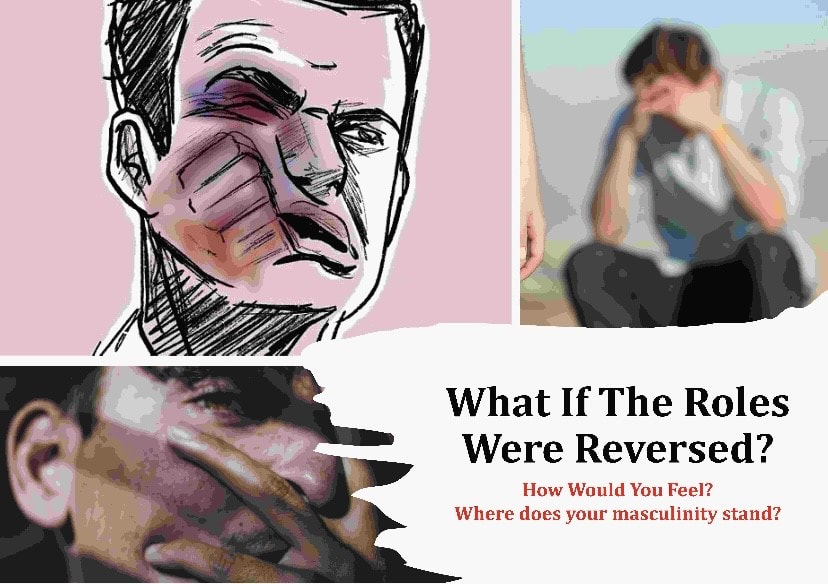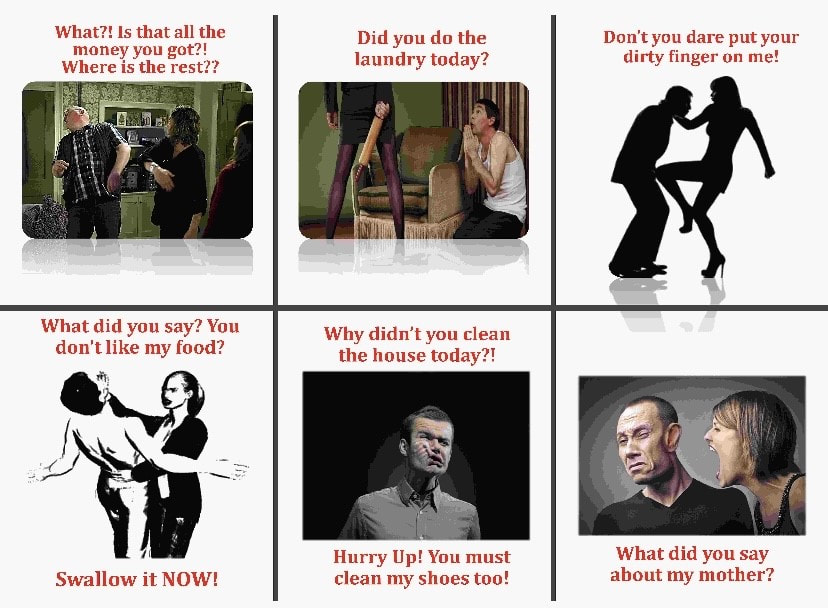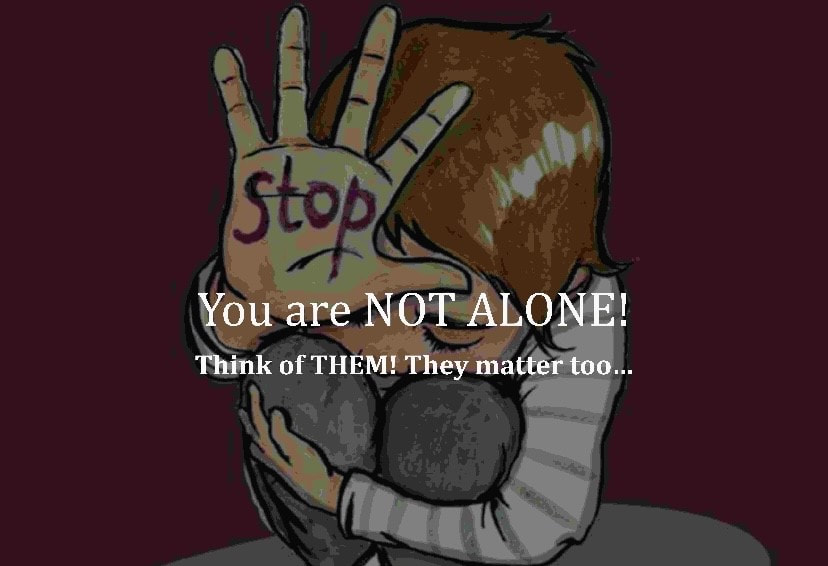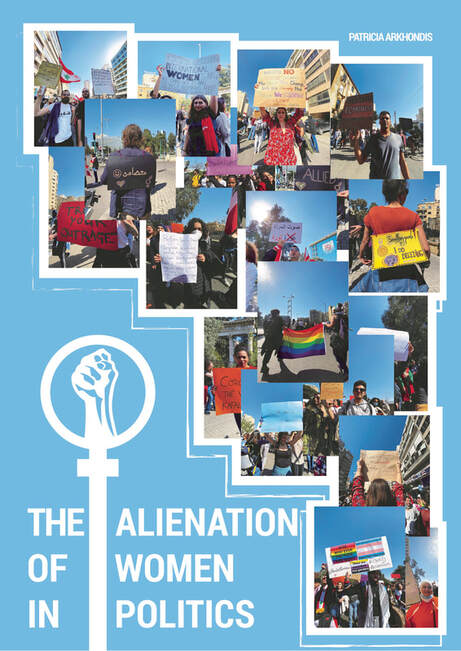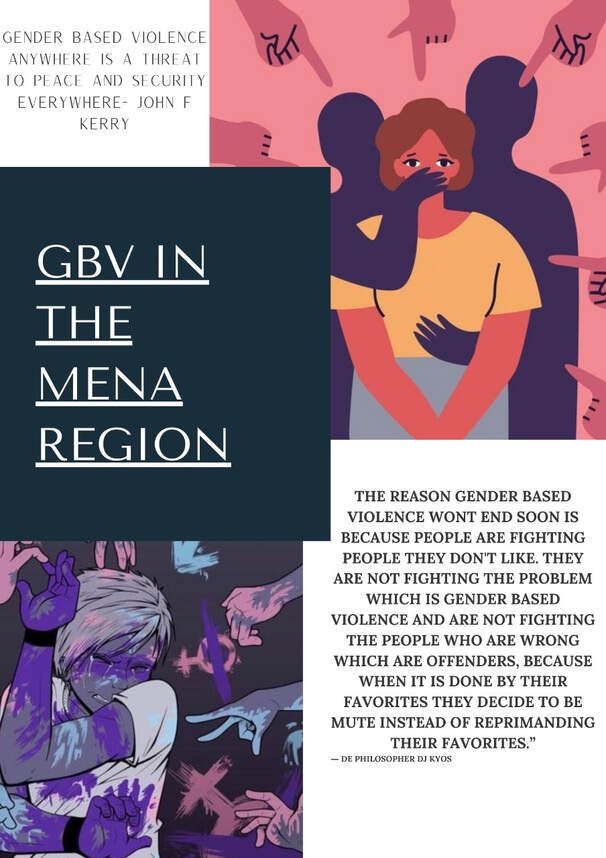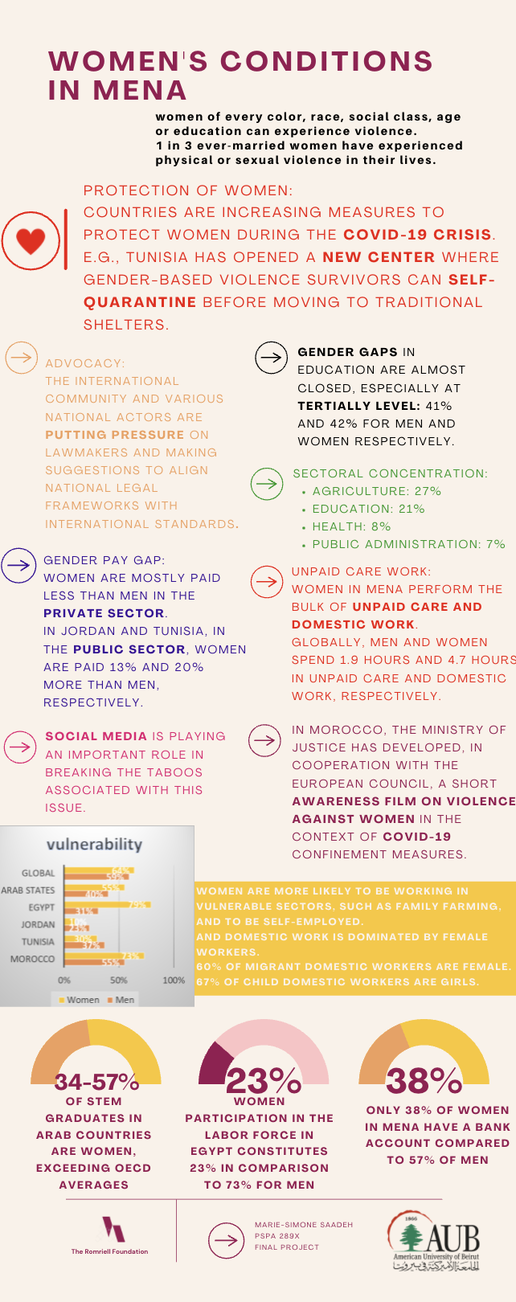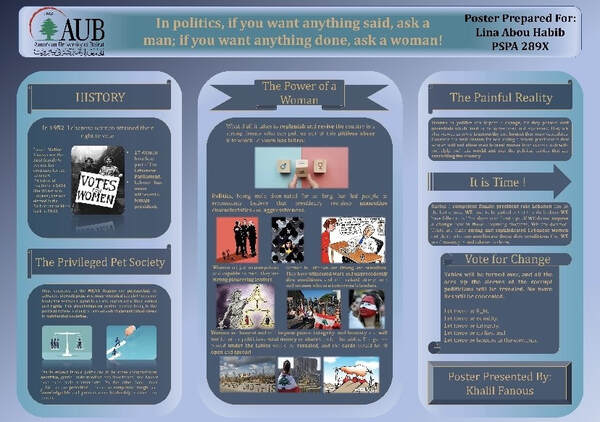- Home
- Regional Storytelling
- Student Projects
- Women of Afghanistan
- Co-ed Thesis Page
- Women's Day
- Podcasts
- Lectures
- Op-Eds
- 16 Days of Activism
- Beirut's Anger and Solidarity
- Citizens' Initiatives
- Lebanon Protests
- Hassan Abbas Memorial
- Research Papers
- Events
- Hotspots
- Spotlight
- Art Competition
- WE ARE READING
This page both highlights the incredible work of students and also serves as a platform for their fresh voices as they express their own take on feminist causes in their own way. They may choose to publish a paper, a video, a podcast and/or an illustration.
The views and opinions expressed on this page are those of the authors and do not necessarily represent the views of ASI-REM
Achieving Gender Equality (SDG 5):
A Better Future for Women and Rising Generations
Rawane Hamed
A fundamental aspect of achieving gender equality has always been providing equal rights to men and women. Despite seeing some progress towards achieving this goal, women and girls still face discrimination and rights violations every day and are still being disadvantaged compared to men worldwide, explaining why it is still one of the Sustainable Development Goals to be achieved. The inequalities faced by women demonstrated a link between gender and health outcomes, occurring where they are more exposed to poverty, lack of access to education, malnutrition, violence, and poor mental health. All these aspects not only affect women negatively but also have a measurable impact on their children’s health, especially within the stages of early development, thereby opening the way for rising generations, both girls and boys, to endure the consequences of gender inequalities the world has imposed on women. Therefore, I will present the severe impact gender inequalities have on both women and their children’s health in the settings of poverty, violence against women, and inequality in access to education, to demonstrate the importance of gender equality.
click here for more
click here for more
Feminism and Islam: Is it Possible to be a Muslim Feminist?
Rayane El Masri
"Whenever I portrayed myself publicly as a young Muslim woman wearing the Hijab who talked about gender equality and women’s rights, I get almost the same reaction from different people around the world “Oh, but is it even possible to be a Muslim and talk about women’s rights?” or “How can you be a Muslim and ask for women’s liberation? That goes against your religion!”. I was as surprised as them by these questions, since a thing that felt so natural to me, and my religious upbringing was seen as something weird and controversial. Establishing justice and human rights is one of the first foundations that Islam came with. I grew up with the stories of Muslims fighting injustice in all its forms, so why did people assume that women’s rights which are human rights are alien to Islam? A question that I mostly get asked is “Is it possible to be a feminist and a practicing Muslim?”
click here for more
click here for more
Gender-Based Violence
Khalil Fanous
Children Upbringing in MENA Region Subconsciously Fuels Patriarchy
Alice Abou Chacra
An interesting fact about our life as human beings is that we all start and finish it in the same way. While it can be argued that not all humans are born equal, some are richer, some are taller, etc., one thing for sure is that death makes all people equal. However, if all people die equally, why does birth set differences between them? What kind of differences are automatically born with babies? Even though life would be “la vie en rose” if all people were the same since day one in their lives, it is not achievable, and it is the reason social and political hierarchies and fights have long been around. For instance, a baby born in the United States of America directly receives the prestigious American citizenship, and is spared from years of suffering in terms of travelling, education, job applications, etc. Furthermore, a girl born in the seventeenth century was likely to face infanticide seconds after arrival into the world.
click here for more
click here for more
Struggles of Arab Women
Lynn Malaeb
GENDER INEQUALITY: CARE WORK
Dalia Mosleh
Unpaid care work refers to any behaviors associated to caring for individuals in a family or community and is a component of social reproduction. This is an unpaid job that requires time and energy and is done out of a sense of social obligation and/or love and compassion. Unpaid care work is recognized as a female responsibility and is referred to as “women’s work”. Although it is well understood that it is a crucial component of the economy, it is frequently overlooked and undervalued.
click here for more
click here for more
The Different Facets of Honor Cultures and Killings
Patricia Arkhondis
Arab countries are honor-oriented cultures that place a high value on personal and familial honor as well as social reputation. Hence, understanding cultures of honor and honor killings in all of their aspects is crucial to prevent these crimes from happening. Honor-based killing and the use of violence to restore honor are crimes that occur in both Western and Arab countries. As such, this literature review aims to investigate honor killings as a social, legal, and psychological phenomenon, as well as to examine possible solutions to the prevalence of honor killings. Throughout my search for articles, I noticed a gap in the psychological literature to identify the motives behind honor killings and a lack of research around honor killings happening in Western countries.
click here for more
click here for more
Care Work: An Invisible Form of Labor
Yomna El Zibaoui
Care work is a combination of unpaid and paid activities, ranging from cooking and cleaning to taking care of children and elderly, that is usually performed within the domestic sphere. This work, often unrecognized and undervalued, falls disproportionately on women and girls.
click here for more
click here for more
GBV in the MENA
Lynn Malaeb
Women's Conditions in the MENA
Marie Simone Saadeh
Female Genital Mutilation
Karim Al Kharsa & Rahaf Fouani
Ask a Woman
Khalil Fanous
“In politics, if you want anything said, ask a man; if you want anything done, ask a woman”, said Margaret Thatcher. Back in 1952, Lebanese women attained their right to vote. Ever since that victory, only 17 women have been part of the Lebanese parliament, and the country has never witnessed a female president. However, in the dire and unprecedently chaotic situation the word is in; we are in desperate need of strong leaders who can contain and maintain inner peace and a proper living. The pandemic in Lebanon worsened the economic status which was already at stake and on the edge. Our country has been ruled by corrupt parities since I first opened my eyes on the world. However, the country was doing a tad better overall than it is now. Nowadays, an average employee’s salary does not quite exceed 50$ per month… But what would change if we had a woman in the presidency, and would citizens trust having a female rule Lebanon? As Thatcher said, if you want something done in politics, ask a woman.
click here for more
click here for more
ADDRESS
Address
PO Box 63 Brummana 1204-2010, Maten, Lebanon Tel: +961-70-300308 |
CONTACT
|

